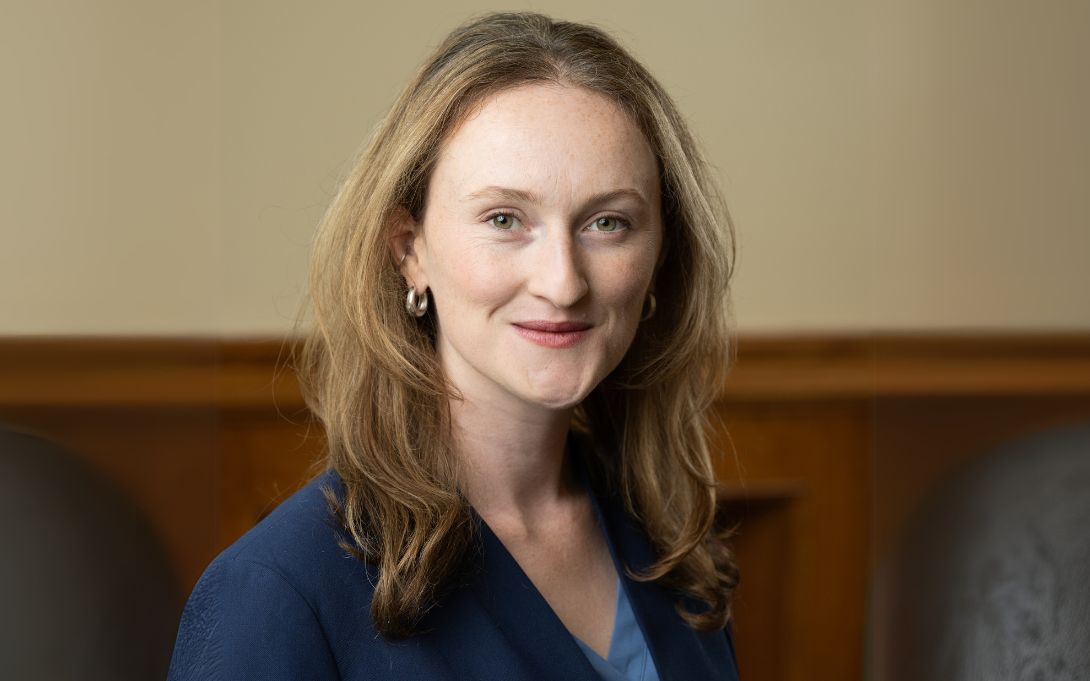
Katherine Richard, who holds a PhD in Economics and Public Policy from the University of Michigan, is the 2025 winner of the Peter Eckstein Prize for Interdisciplinary Research. She is recognized for her study on a policy reform that increased penalties for families who failed to meet work requirements under the Temporary Assistance for Needy Families (TANF) program.
Drawing on economic and social policy scholarship, Richard’s research paper, "Penalties in the Safety Net: Effects of Work Requirement Enforcement on Program Participation and Labor Supply," considers the downstream consequences of removing families from the U.S. social safety net and suggests that reducing administrative burdens could increase family economic stability. The paper was co-authored by Lea Bart, who holds a PhD in Economics at the University of Michigan.
“The committee found Richard’s work deeply interdisciplinary,” said Ford School writing instructor Alex Ralph, who chaired the selection committee. “In her paper she demonstrates a sustained engagement with both public administration and social policy scholarship, as well as labor and public economics. Richard's conclusions, moreover, are important and illuminating.”
Using a comprehensive dataset of administrative records from the Michigan Department of Health and Human Services (MDHHS), Richard causally links TANF work sanctions and subsequent program participation and labor supply.
The authors’ analysis shows that when families were removed from TANF they were less likely to use other vital food assistance and healthcare programs such as Supplemental Nutrition Program (SNAP) and Medicaid. Moreover, as sanctions increased from three to six months, families were less likely to re-enroll in TANF and their chances of finding employment decreased.
The findings emphasize that harsher penalties and administrative burdens undermine the economic security of an already marginalized group, leading to significant long-term negative consequences for low-income families. Richard suggests that reducing safety net penalties could improve economic stability and resource access for economically vulnerable families.
About the Eckstein Prize
The Peter Eckstein Prize for Interdisciplinary Research and Policy Analysis is awarded to a Ford School student or group of students whose work exhibits the use of theories, concepts, frameworks, research methods, or other tools from two or more disciplines in researching, analyzing, or furthering understanding of a topic, issue or debate related to public policy, domestic or international. The prize was established in 2019 by a gift from Peter Eckstein (LSA ‘59), a student of both economics and social sciences. Throughout his career he saw the value in combining the two fields to explain economic phenomena.
